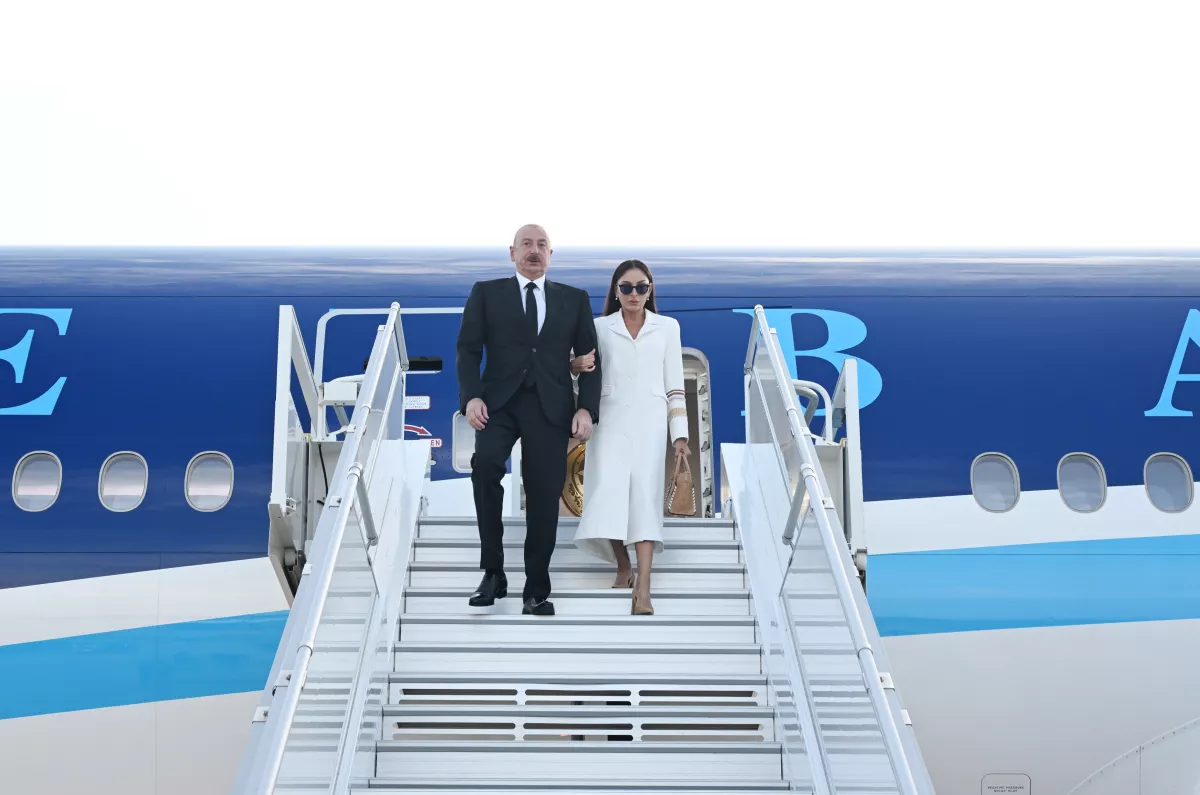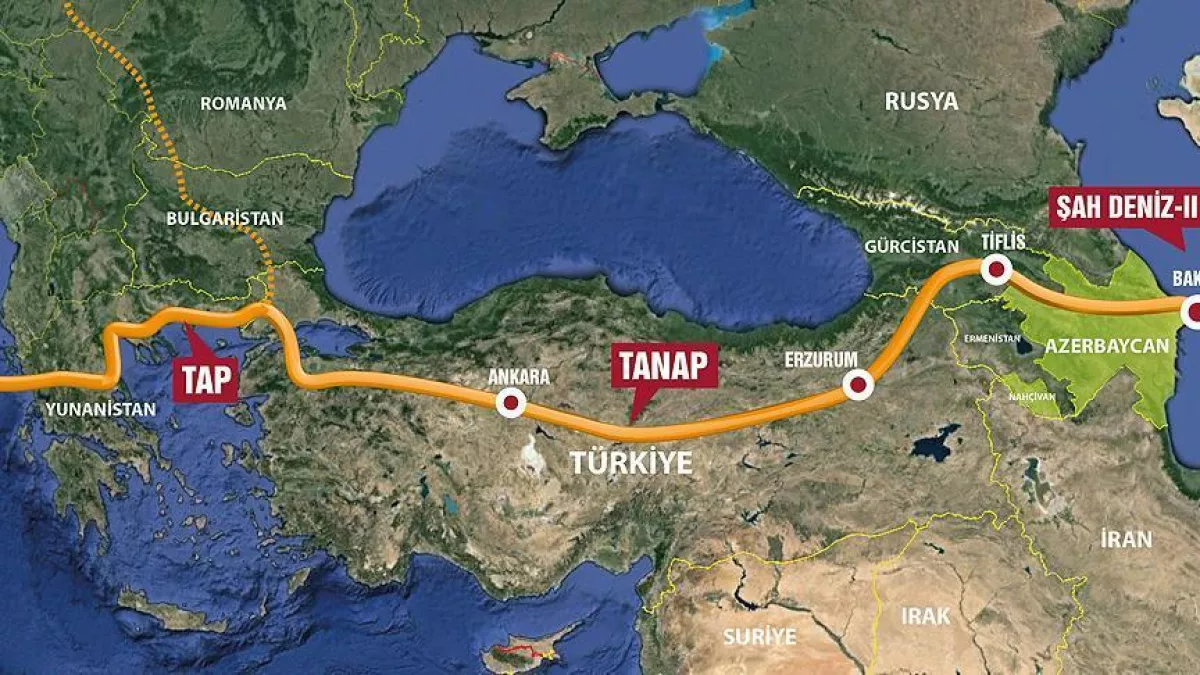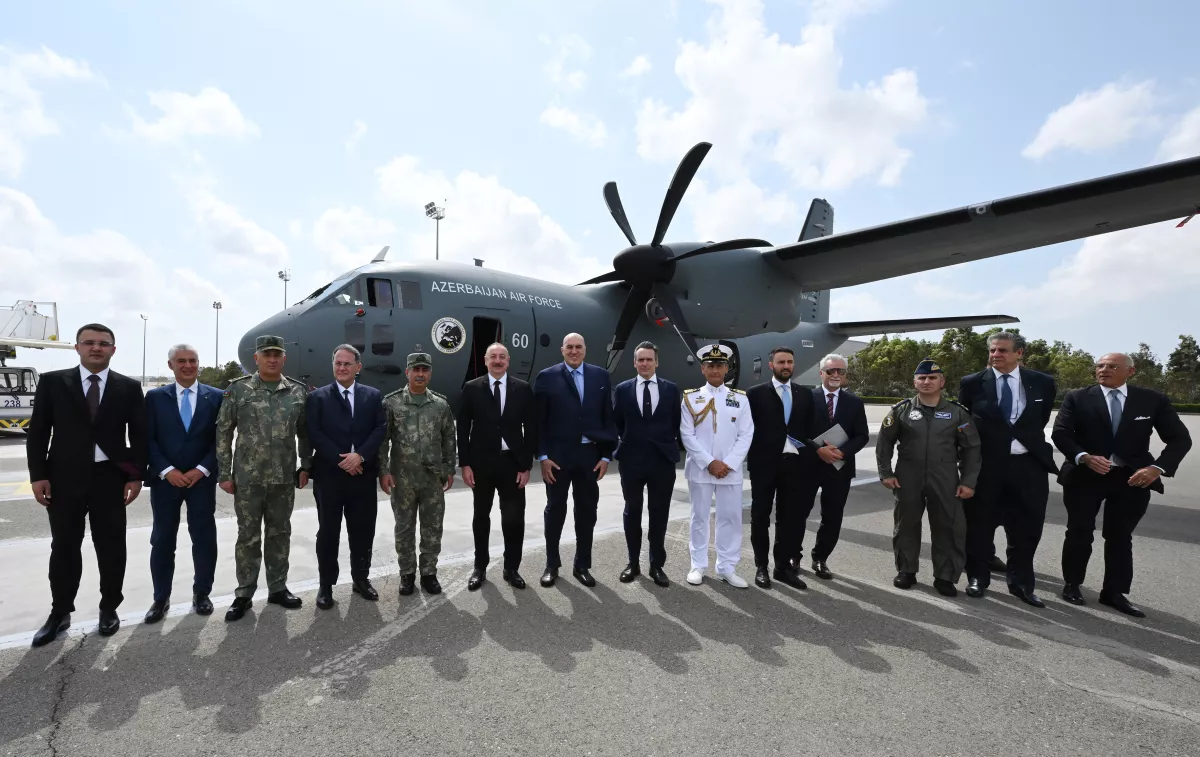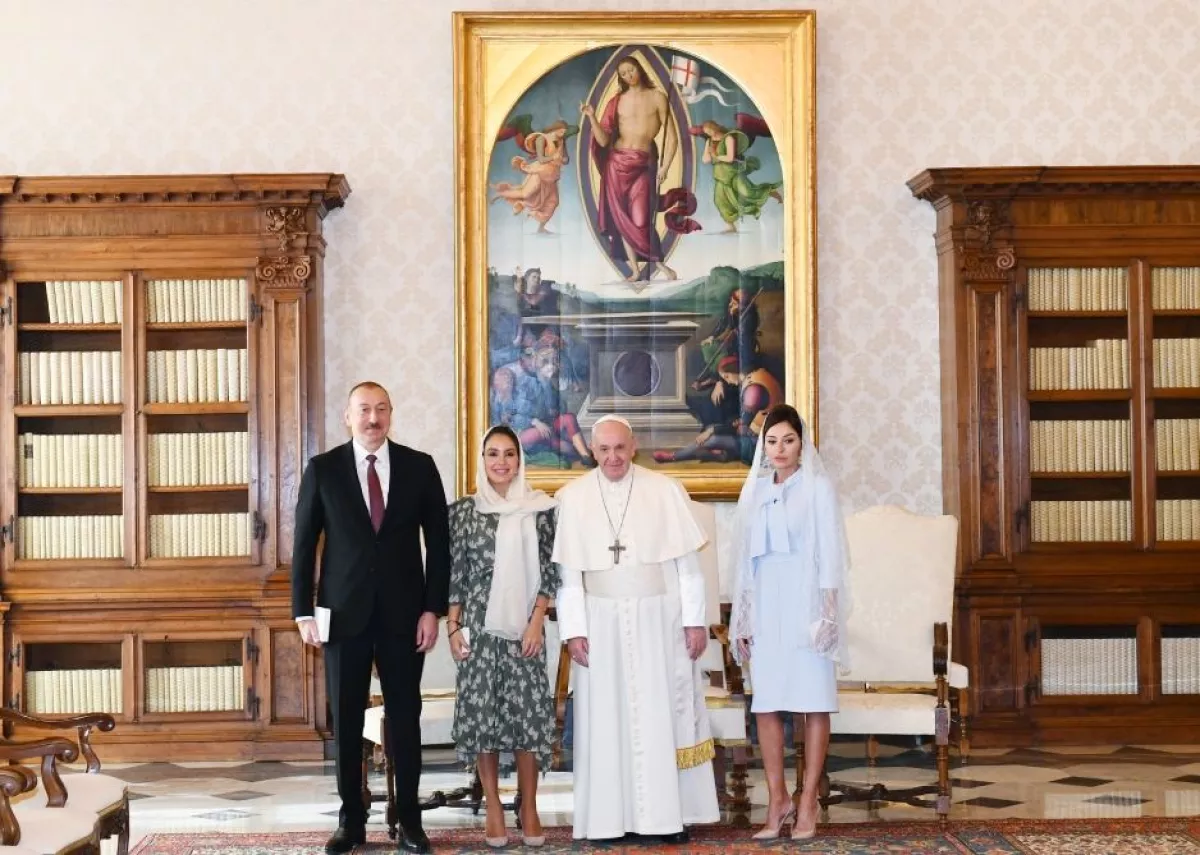Azerbaijani president in Italy to further forge stronger ties across energy, trade, defense Strategic partnership set to further deepen
The relationship between Azerbaijan and Italy is multifaceted, covering a broad spectrum of political, economic, military, and trade collaborations. Azerbaijan, rich in energy resources, has established itself as a key supplier of natural gas to Europe, with Italy being one of its principal customers. Italy, in turn, ranks first in trade turnover with Azerbaijan, highlighting the depth of economic ties between the two nations.
Political relations: A strong foundation
Azerbaijan and Italy have cultivated strong political ties, underpinned by mutual respect and shared interests. The working visit of Azerbaijani President Ilham Aliyev to Italy at the invitation of President Sergio Mattarella is a testament to the importance both nations place on their relationship. Over the years, these ties have been reinforced through high-level visits, bilateral agreements, and cooperation in international forums.

Italy has been a consistent supporter of Azerbaijan’s sovereignty and territorial integrity, particularly during the Nagorno-Karabakh conflict. This political support has laid the groundwork for a relationship that goes beyond mere diplomacy, extending into practical cooperation in various sectors. Italy's role in the European Union (EU) also positions it as a crucial partner for Azerbaijan, especially as Baku seeks to deepen its ties with European institutions.
Economic & trade ties: A robust partnership
The economic relationship between Azerbaijan and Italy is the cornerstone of their bilateral cooperation. Italy is not only the largest importer of Azerbaijani natural gas but also holds the top position in trade turnover with Azerbaijan. This trade relationship is bolstered by the Southern Gas Corridor, a critical infrastructure project that transports Azerbaijani gas to Europe, with Italy as a key destination.
Beyond energy, the two countries cooperate in sectors such as construction, agriculture, and telecommunications. Italian companies have been actively involved in Azerbaijan's development projects, particularly in the oil and gas industry. The participation of Italian firms in the construction of the Trans Adriatic Pipeline (TAP) is a prime example of this collaboration.
The trade relationship is further enhanced by the presence of the Italy-Azerbaijan Chamber of Commerce, which facilitates business exchanges and promotes economic cooperation. The chamber has been instrumental in organizing trade missions, business forums, and other events that bring together business leaders from both countries.

Energy cooperation: A strategic alliance
Energy is the linchpin of Azerbaijan-Italy relations. Italy's dependence on Azerbaijani natural gas has made energy cooperation a strategic priority for both nations. The Southern Gas Corridor, which includes the TAP, is a landmark project that not only diversifies Europe’s energy sources but also strengthens Azerbaijan’s role as a key energy supplier to the continent.
The successful completion of the TAP, which delivers gas from Azerbaijan's Shah Deniz field to Italy, has solidified this energy partnership. Italy’s involvement in the Southern Gas Corridor underscores the mutual benefits of this collaboration, as it ensures energy security for Italy while providing Azerbaijan with a stable and lucrative market for its gas exports.
In addition to natural gas, there are opportunities for cooperation in the renewable energy sector. As the global energy landscape shifts towards sustainability, Azerbaijan and Italy have the potential to explore joint ventures in solar, wind, and hydroelectric power, further diversifying their energy cooperation.
Military & defense collaboration: Building strategic capabilities
While energy and trade dominate the Azerbaijan-Italy relationship, military cooperation is an emerging area of interest. Italy's advanced defense industry and Azerbaijan's strategic location make military collaboration a mutually beneficial endeavor. The two countries have engaged in various forms of military cooperation, including joint training exercises, defense industry partnerships, and the exchange of military expertise.

Italy's experience in the defense sector, particularly in areas such as aerospace, cyber defense, and military technology, is of great interest to Azerbaijan. Collaborative projects in these fields could enhance Azerbaijan's defense capabilities while providing Italy with opportunities to expand its defense industry exports.
Moreover, the political stability and strong bilateral relations between the two nations provide a conducive environment for deepening military cooperation. As Azerbaijan continues to modernize its military, Italy could play a significant role in providing technical assistance, training, and equipment.
Cultural & educational exchange: Strengthening people-to-people ties
Cultural and educational exchanges form an integral part of Azerbaijan-Italy relations, fostering mutual understanding and strengthening people-to-people ties. Italy's rich cultural heritage and Azerbaijan's unique cultural identity provide a fertile ground for collaboration in the arts, education, and tourism.
Several initiatives have been undertaken to promote cultural exchange, including the establishment of Italian language courses in Azerbaijani universities and the organization of cultural events showcasing Italian art, music, and cuisine in Baku. These exchanges not only enhance mutual appreciation but also contribute to the soft power of both nations.
Educational cooperation is another area of focus, with numerous Azerbaijani students pursuing higher education in Italy. Scholarships, academic exchanges, and joint research projects are key components of this collaboration, contributing to the development of human capital in both countries.

Challenges & opportunities: Navigating a complex landscape
While Azerbaijan and Italy enjoy a strong partnership, they also face challenges that require careful navigation. The volatility of global energy markets, geopolitical tensions in the South Caucasus, and the evolving dynamics within the EU are factors that could impact their relationship.
However, these challenges also present opportunities for both nations to strengthen their cooperation. Diversifying economic ties beyond energy, enhancing military collaboration, and expanding cultural and educational exchanges are potential avenues for deepening the partnership.
The evolving global landscape also underscores the importance of strategic dialogue between Azerbaijan and Italy. Regular high-level meetings, such as President Aliyev’s working visit to Italy, provide a platform for addressing these challenges and identifying new areas of cooperation.
Conclusion
The Azerbaijan-Italy relationship is a dynamic and multifaceted partnership that spans political, economic, military, and cultural domains. With strong foundations in energy cooperation, robust trade ties, and emerging military collaboration, the relationship between Baku and Rome is poised for further growth.
As both nations navigate the complexities of the global landscape, their strategic partnership will continue to play a crucial role in regional stability and development.








